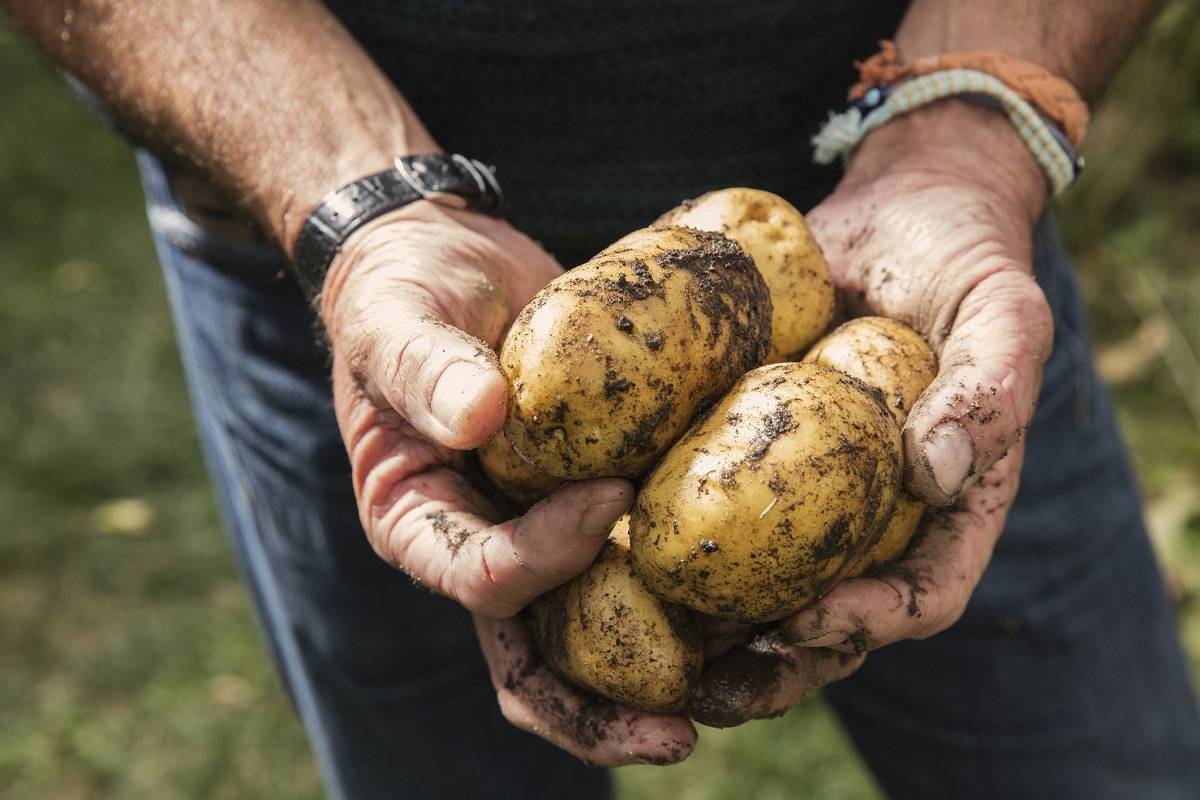
Potato is a versatile root vegetable and a staple food in many Indian households. These are a type of edible plant tuber eaten around the world. Potatoes are relatively cheap, easy to grow, and packed with various nutrients. Therefore, potato plays an essential role in diet diversification in many countries where family agriculture and smallholders continue to supply local markets with fresh and affordable agricultural produce.
When eaten with its skin, a single medium-sized potato of 150g provides nearly half the daily adult requirement (100 mg) of vitamin C. It is also a good source of vitamins B1, B3, and B6; minerals such as iron, potassium, phosphorus, and magnesium; and contains folate, pantothenic acid, and riboflavin. Vitamin B deficiency has both short- and long-term impacts, including poor cognitive and pregnancy outcomes and poor child development and life outcomes.
Potato also improves food security because it is a source of employment and income, both of which have direct links to household food access. The comparatively short maturity period, nutritious characteristics, employment, and income opportunities that characterize potatoes make it a resilient crop that can secure vulnerable livelihoods under the effects of climate change and changing market environments.
Potential Health Benefits of Potatoes
Packed with essential nutrients
-
Potatoes contain a good amount of carbohydrates and fiber, as well as vitamin C, vitamin B6, potassium, and manganese. Their nutrient contents can vary depending on the variety and preparation method. The skin of potatoes is packed with vitamins and minerals
-
Peeling potatoes can significantly reduce their nutritional content. Cooking potatoes, rather than eating them raw, can kill off bacteria and break down antinutrients that interfere with the absorption of their nutrients. Baking, boiling, and steaming potatoes are the best choices in terms of minimizing their fat and calorie contents, compared to frying.
Contain Antioxidants
-
Potatoes are a good source of antioxidants like flavonoids, carotenoids, and, phenolic acids, which may reduce the risk of chronic diseases like hypertension, diabetes, and certain cancers by neutralizing potentially harmful molecules known as free radicals. Studies have also found that colored potatoes like purple/ golden potatoes can have three to four times more antioxidants than white potatoes.
Improve Blood Sugar
-
Potatoes contain a special type of starch known as resistant starch. This starch is not broken down and fully absorbed by the body. Instead, it reaches the large intestine where it becomes a source of nutrients for the beneficial bacteria in our gut. Resistant starch may help to reduce insulin resistance, which, in turn, improves blood sugar control.
Improve Digestive Health
-
The resistant starch in potatoes may also improve digestive health. When resistant starch reaches the large intestine, it becomes food for beneficial gut bacteria. These bacteria digest it and turn it into short-chain fatty acids. Resistant starch from potatoes is mostly converted into the short-chain fatty acid butyrate-the preferred food source for gut bacteria.
-
Studies have shown that butyrate can reduce inflammation in the colon, strengthen the colon’s defenses, and reduce the risk of colorectal cancer. Moreover, butyrate may aid patients with inflammatory bowel disorders, such as Crohn’s disease, ulcerative colitis, and diverticulitis.
Naturally Gluten-Free
-
The gluten-free diet is one of the most popular diets worldwide. It involves eliminating gluten, which is a family of proteins found in grains like spelt, wheat, barley, and rye. People with celiac disease or non-celiac gluten sensitivity can experience severe discomfort when consuming foods that contain gluten
-
Symptoms include sharp stomach pain, diarrhea, constipation, bloating, skin rashes, etc. Potatoes are naturally gluten-free, which makes them an excellent food choice for people with celiac disease or non-celiac gluten sensitivity.
Increase satiety value
-
Potatoes are recognized as one of the most filling foods available. They may increase the levels of fullness hormones, such as cholecystokinin (CCK). Foods that are filling may help regulate or lose weight, as they curb hunger pains and reduce appetite
-
A study, compared how the intake of rice, potatoes, and pasta affected food intake and satiety in 11 participants and found that potatoes were the most satiating and led to the greatest decrease in overall calorie intake. Potato skins also contain a good amount of fibre, which moves slowly through the body undigested, promoting fullness and decreasing hunger.
Extremely versatile
-
Potatoes can be boiled, steamed, fried, baked, or roasted and used in a wide assortment of dishes. Consuming potatoes with skin ensures the maximum amount of nutrients from the potato as many of their nutrients are concentrated in the outer skin, peeling the potato can remove a significant portion of the fibre and mineral content in each serving.
Potato plays an important role in diet diversification in many countries where family agriculture and smallholders continue to supply local markets with fresh and affordable agricultural produce. Potato is still an essential staple food in rural food systems where it is produced, and emerging food systems that are urbanized but where consumers still rely on staples such as potatoes.
The article is authored by Dr. Papori Bora, Project Associate (APART).








